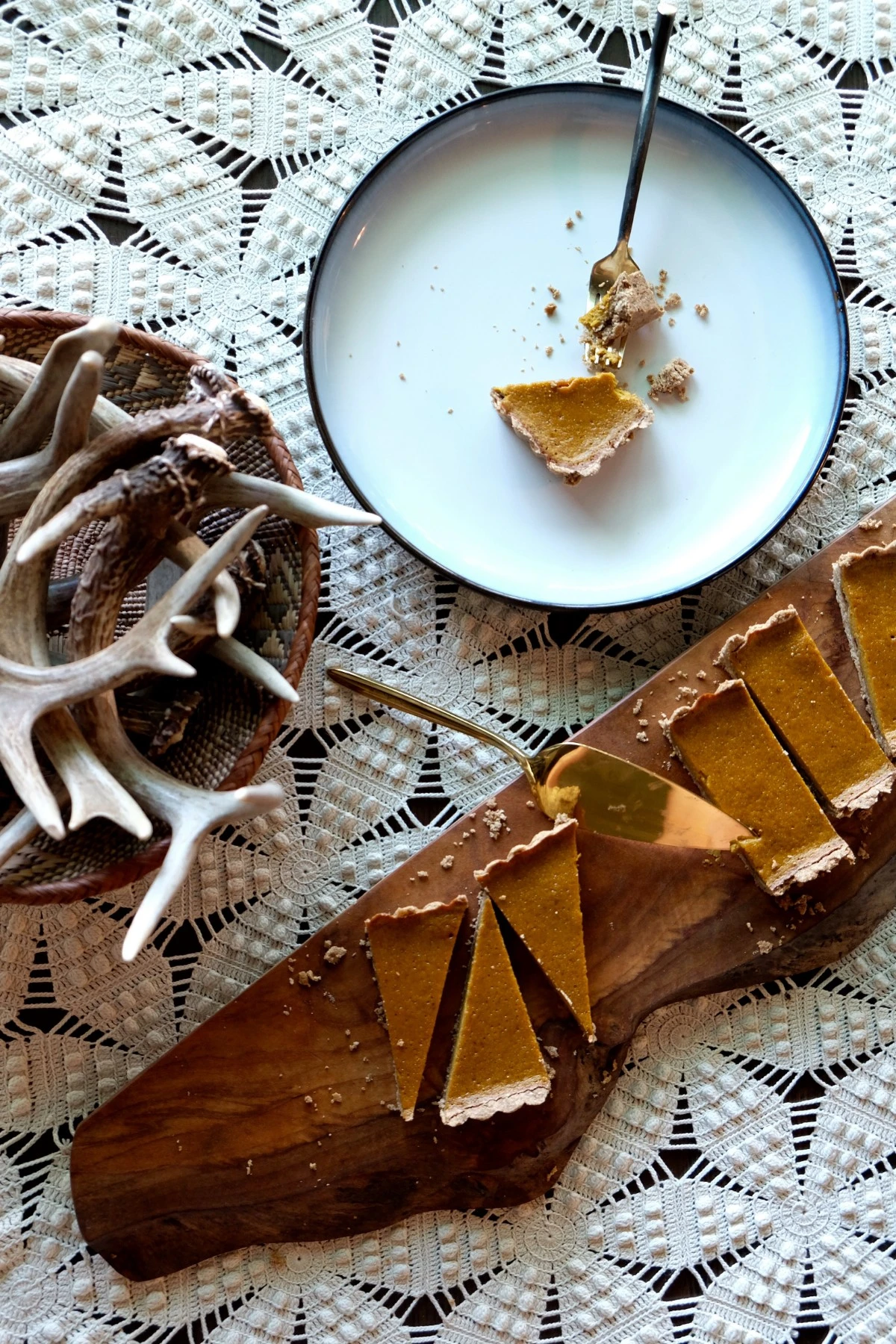squashing traditions
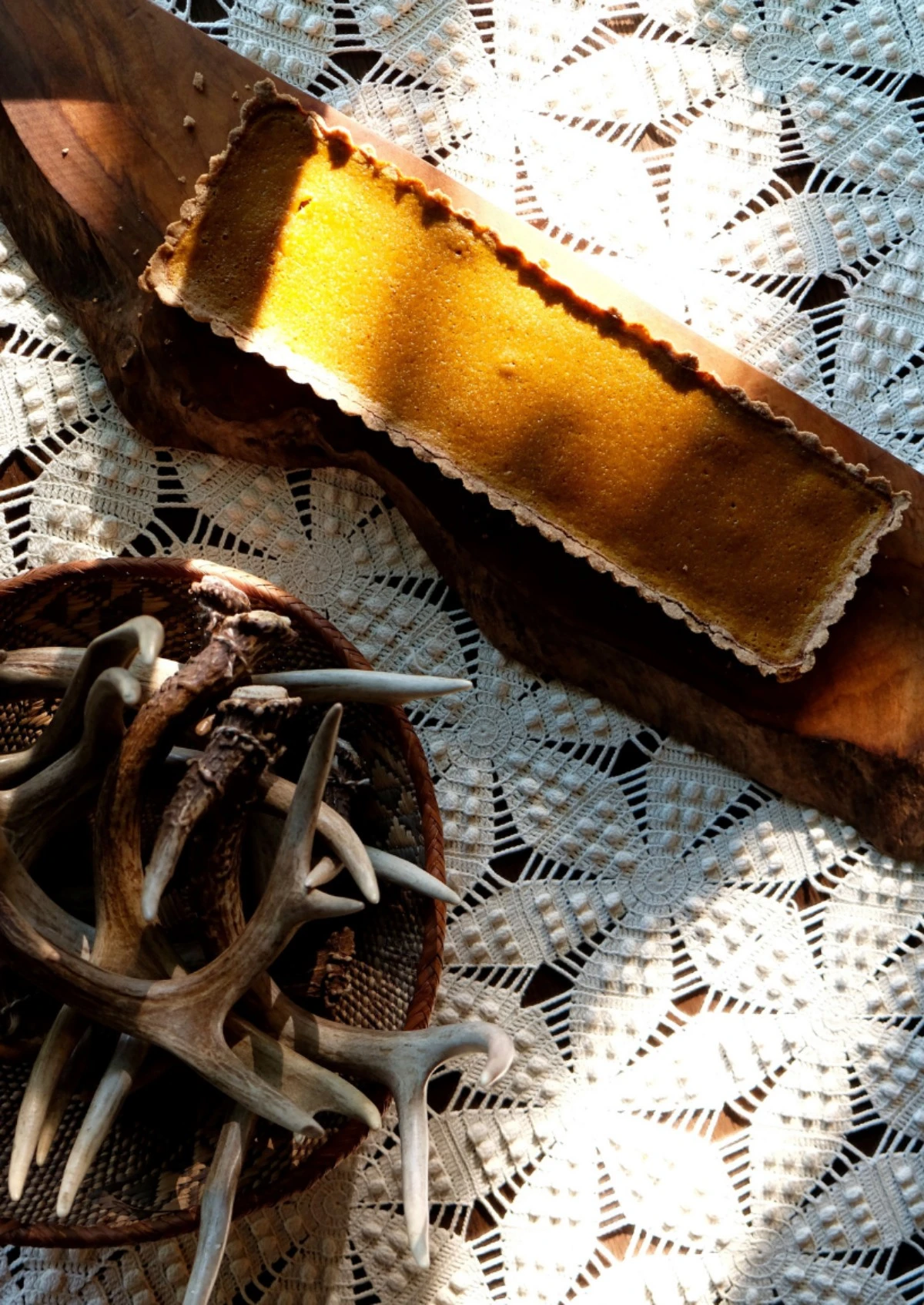
Thanksgiving provides a whole host of expectations, traditions, and of course, family drama, that every holiday season we submit ourselves to willingly or unwillingly. The holidays seem to expose our best and worst selves during a time when our expectations are high and emotions higher. Sharing a meal with family is a revealing experience that goes far beyond food. It means sharing your world and your beliefs with the people whose judgements you value most and being able to say – this is me, this is you, and this is us; I love you just because, please accept me as I am. But what seems to result can be a hostile and argumentative caged arena versus the loving and warm embrace we envision going home.
A simple shared meal where we honor friends, family and give thanks, has become the underground breeding ground for a host of underlying expectations fueled by societal-shaped norms. These preconceived traditions and stereotypical images of what the holidays should look like, down to what a traditional family meal should look, smell, and taste like have collided with a complex modern question we seem to be asking, and accepting more and more – what is normal?
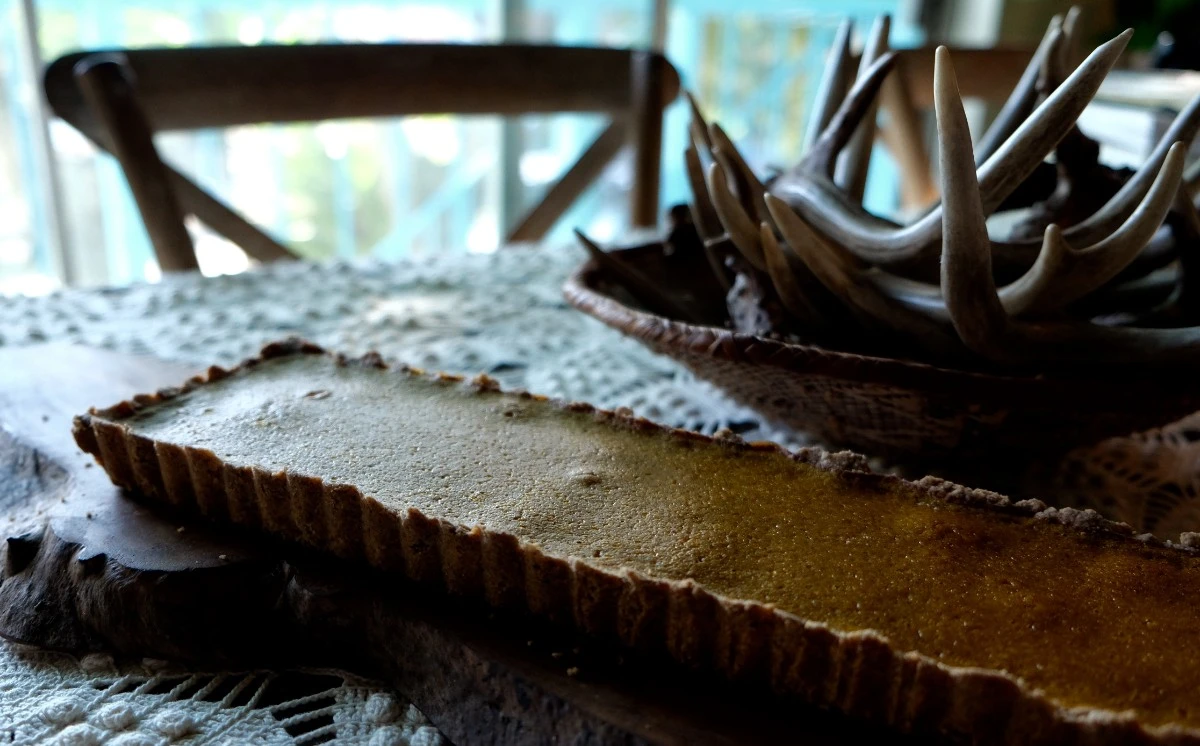
Of course, when it comes to food, we have been hard-wired from the very beginning. Evolutionary cravings for salt, sugar, and fat go hand-in-hand with our primordial recognition and attraction for calorie-rich sources of foods as well as shaping a more evolved craving for comfort foods in the form of sugary doughs, rich pies, soufflés, and other elaborate dishes. Fall hits and these flavors instantly seem to transport us to a childhood state and elevate our spirits. But what happens when we sit down for a holiday meal and our favorite childhood dish isn’t present, or (gasp!), prepared sans our grandmother’s passed down heirloom recipe? What happens as we begin to understand that what is nourishing or craved by one, excludes or is even harmful to another? Can we find the middle ground and change what it really means to share a meal?
Navigating shared holiday meals does not need to be a cause for stress or frustration. Instead of creating a polarized experience, mine vs. yours, decadent or healthy, let them be an opportunity to share what we have in common – a love for good, delicious foods. A recipe that nourishes, is satisfying, and pleases the whole table can still be delicious without fitting into a traditional mold of canned cranberry sauce and buttery mashed potatoes. While your grandmother’s pumpkin pie may be absent from the table, instead let the conversation be nourishing. Let the shared experiences, reliving of old memories, and quality time spent with loved ones be the highlight of the holiday. In the end, the last focus of a family affair should be what’s being served, it’s just an added bonus.
For a twist on a classic holiday staple, sure to please the whole table, this kabocha squash custard tart is versatile enough to satisfy most dietary restrictions without sacrificing our desire for something decadent and utterly satisfying. This recipe is gluten free, paleo friendly, refined sugar free, with the option to make entirely vegan.
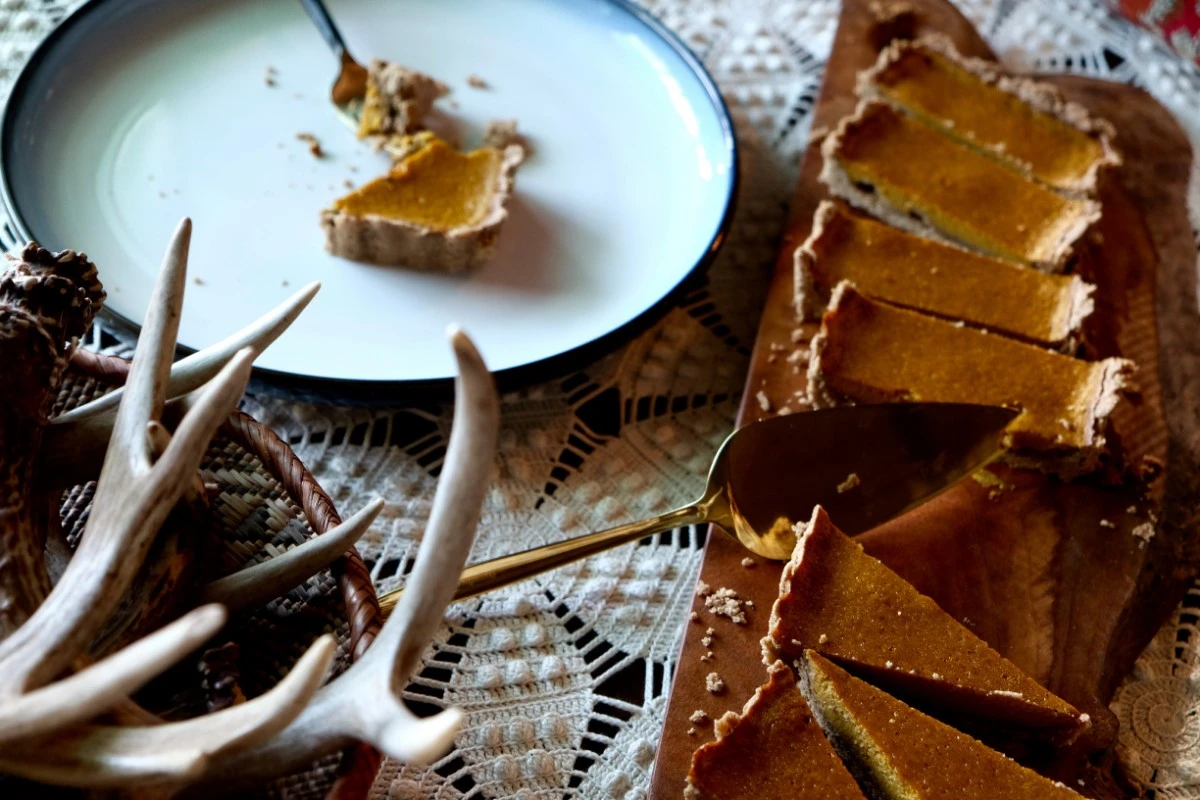
Kabocha Squash Custard on a Gluten Free Shortbread Crust
Serves 8
supplies needed:
13×4 tart pan or for a traditional 10 inch pie double the recipe provided
– Refined sugar free
– Paleo friendly
– Gluten free
– Grain free
– Can be dairy free
– Can be vegan
Shortbread Crust:
1 ¼ cup almond, tigernut, or hazelnut flour
½ cup sweet rice or sorghum flour (if paleo substitute coconut flour)
3 tablespoons arrowroot or tapioca starch
2 tablespoons powdered coconut sugar
½ teaspoon sea salt
½ teaspoon ground chaga powder (optional)
½ cup + 1 Tablespoon, ghee or coconut oil, melted
In a food processor add all the dry ingredients and pulse a few times to mix all ingredients.
Stream in the melted fat and pulse to evenly distribute. You may need to open and scrape the bottom of the bowl to make sure it evenly gets distributed. The dough should look crumbly and hold together when pressed between your fingers.
Form the dough into a ball, wrap in plastic wrap, and refrigerate for 30 minutes until chilled.
Press evenly into a pie plate.
Bake at 325 degrees for 15-20 minutes. The crust will be blonde, but if you prefer more color, increase the temperature to 350 and bake 12-15 minutes.
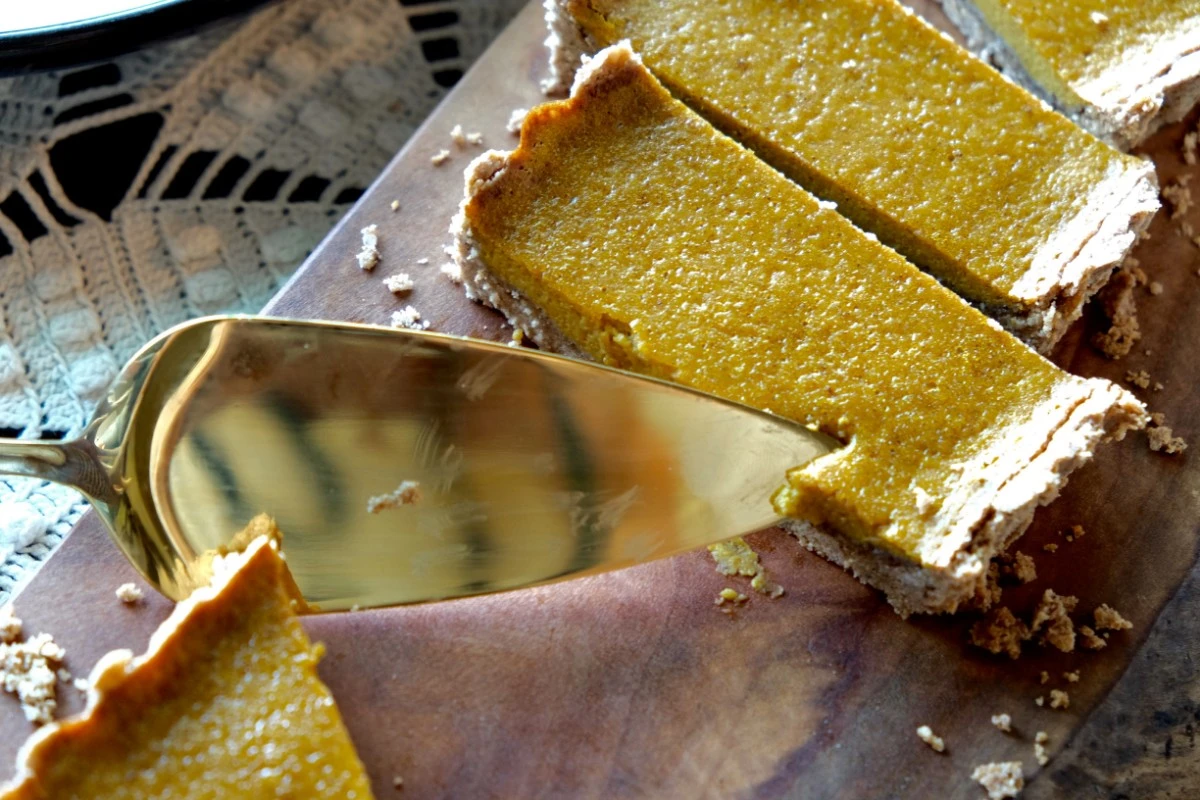
Custard Recipe:
1 cup kabocha squash baked or steamed, rind removed
2 eggs (or 1 teaspoon agar agar powder or 1 ½ tablespoons agar agar flakes)
¼ cup organic coconut milk (for egg-free version, increase to ½ cup)
3 tablespoons grade B maple syrup (or stevia to taste)
½ teaspoon ground cinnamon
½ teaspoon ground ginger, or 1 teaspoon fresh grated ginger
⅙ teaspoon nutmeg
2 pinches ground cloves
2 pinches sea salt
For agar-agar powder version:
Combine all of the filling ingredients together and blend until completely smooth. Immediately pour the filling into the pre-baked tart shell and bake for an additional 30-35 minutes at 350F until golden brown.
For agar-agar flakes:
Soak the flakes in ½ cup coconut milk in a small sauce pot for 20 minutes to soften. Once softened, bring the mixture to medium heat while whisking constantly, be careful not to scald the coconut milk. Reduce to simmer and continue to whisk until the agar-agar flakes have completely dissolved. Pour the agar-agar and milk combination into a blender along with remaining ingredients and blend until smooth. Pour the filling into the pre-baked tart shell and bake for an additional 35 minutes at 350F.
For traditional recipe:
Whip the eggs, milk, spices and sweetener in a blender until fluffy. Add the cooked squash and blend again until smooth. Pour the filling into the pre-baked tart shell and bake at 375F for 35-40 minutes.
